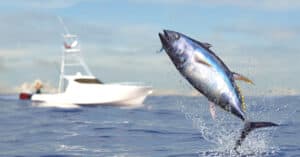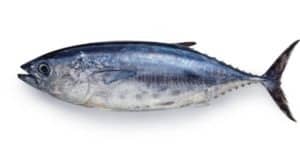From the giant bluefin that can reach well over 1,000 pounds to the four-pound bullet variety, tuna are extraordinary creatures. Able to migrate long distances, they are also unique in the world of marine animals in that they are warm-blooded. It’s rare for fish to be able to regulate their body temperature.
But of almost all the species of tuna in the oceans (there are 15), one stands out as the most sustainable and safe — the skipjack (Katsuwonus pelamis).
Lowest in mercury and considered to have healthy worldwide populations, skipjacks are generally small, from 7 to 20 pounds (3.17-9 kilograms). Of these small and tasty fish, what is the largest skipjack ever caught?
Big Catch
For 24 years the record for the largest skipjack tuna held steadfast at a tad over 45 pounds (20 kilograms). Then Joeri Van Laken came along in 2020. He broke that record with a 46-pound, 5-ounce (21-kilogram) skipjack taken off la Gomera, Spain.
Using a very pricey big game reel (a Shimano Tiagra), Laken’s catch was 38.98 inches long (99 centimeters) and had a girth of 29 inches (73.66 centimeters).
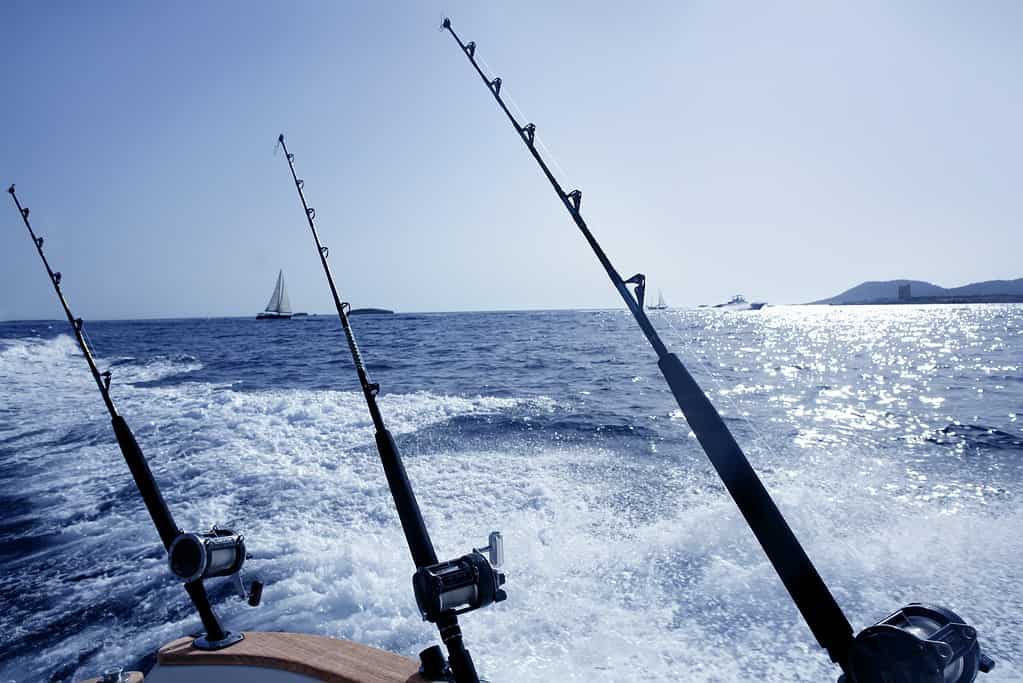
A record-setting skipjack tuna was caught in 2020 off la Gomera, Spain.
©LUNAMARINA/iStock via Getty Images
While skipjacks may be considered easier catches than other types of tuna, it still takes a skilled angler to haul a good-sized one in. Other names skipjack tuna goes by are ocean bonito and striped tuna.
Where the going gets tough, however, is in casting for the really big fish of the tuna world.
The 3 Million-Dollar Tuna
The sale of a 612-pound bluefin tuna (Thunnus thynnus) to a Japanese sushi mogul in 2019 for 3.1 million dollars may have made headlines, but it wasn’t even close to the largest bluefin ever landed.
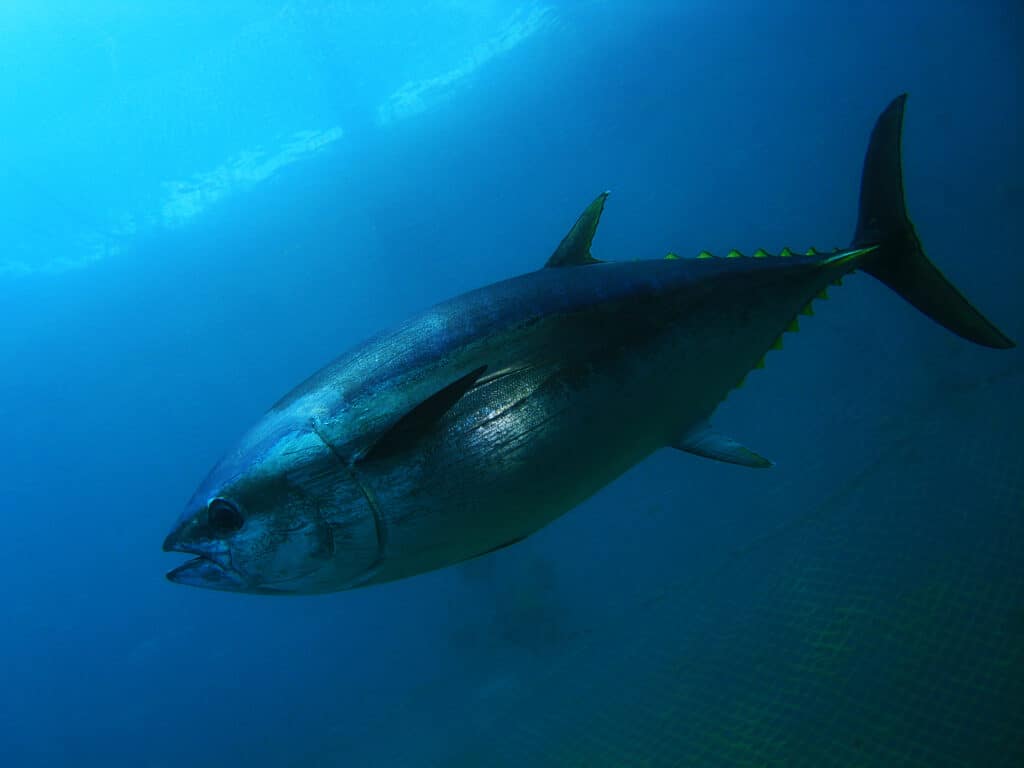
Bluefin is the largest tuna. They are found in all oceans and can live up to 40 years.
©Alexius Sutandio/Shutterstock.com
That distinction goes to a 1,496-pound (674 kilograms) monster caught off the province of Nova Scotia in Canada. Although angler Ken Fraser caught the titanic tuna back in 1979, his record still stands.
Mercury Madness
But bluefin, despite the amazing sushi it can be made into, can also contain relatively high amounts of mercury. This heavy metal, which is ever-present in the world’s oceans, both naturally and due to pollution, is found in higher amounts in larger fish. That’s because they eat little fish, building up more and more mercury in their bodies. Being high on the food chain has its advantages and disadvantages!
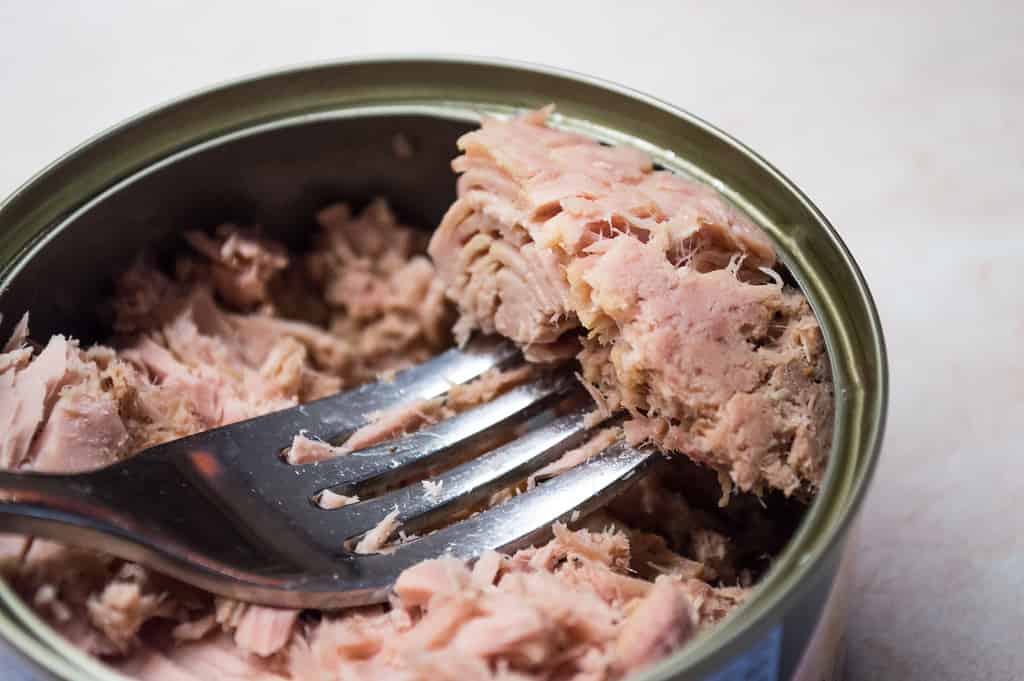
Skipjack tuna has been found to have the lowest mercury levels in any of the canned varieties.
©Christopher Stokey/iStock via Getty Images
Back in 1970, a chemistry professor in New York decided to check out a can of tuna in his pantry. After he found more mercury than the FDA considered safe at the time, his experiment resulted in the recall of over a million cans of tuna!
Tuna still contains mercury, however. There’s not much that can be done to remove it from the fish. There are, however, tuna choices that contain substantially lower levels of this neurotoxin.
And that brings us back to skipjack tuna, found to contain the lowest amounts of mercury in any of the canned varieties.
The Best Catch
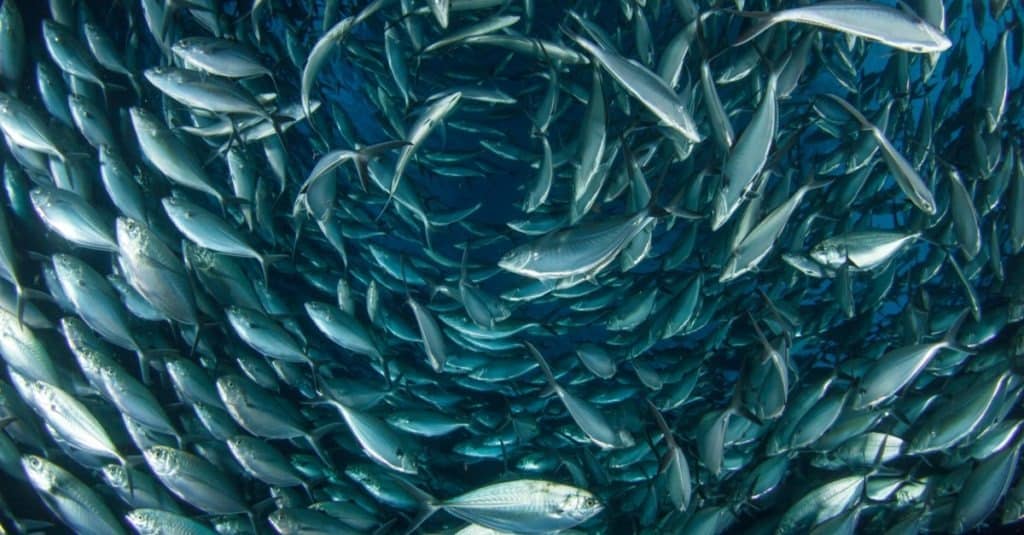
Albacore are known to join together in schools over 19 miles wide.
©Rich Carey/Shutterstock.com
Canned tuna typically comes in two types, white and light. White, or albacore, has been found to have amounts of mercury that average 0.32 parts per million (PPM). To put that in context, in the 1970s around the time of the professor’s discovery, the FDA set an “action level” of mercury in tuna at 0.5 PPM.
However, the fishing industry wasn’t happy and sued the FDA. The judge agreed with the industry, and the FDA soon after raised its action level to 1 PPM. If fish is found to have mercury levels over 1 PPM, the FDA could, in essence, have it removed from the market.
While light skipjack averages over that old “safety” level, coming in at around 0.12 PPM, it’s still lower than albacore (Thunnus alalunga) or yellowfin (Thunnus albacares). But watch out for generic “light,” and tonno tuna labels. Those are usually yellowfin and will contain more mercury than 100 percent skipjack tuna.
The photo featured at the top of this post is © Nuture/iStock via Getty Images
Thank you for reading! Have some feedback for us? Contact the AZ Animals editorial team.



